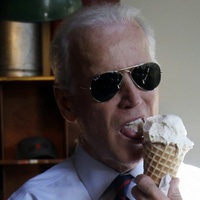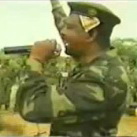Od bidena ocekujem da spektakularno fejluje na izborima dok vucic I sveti sava proteruju rio tinto I uvode pravoslavni gas
Rat u Ukrajini

- Posts : 11141
Join date : 2014-10-28
Age : 45
- Post n°26
 Re: Rat u Ukrajini
Re: Rat u Ukrajini
Svabe nikada nece ratovati sa rusima. Fala ddru
Od bidena ocekujem da spektakularno fejluje na izborima dok vucic I sveti sava proteruju rio tinto I uvode pravoslavni gas
Od bidena ocekujem da spektakularno fejluje na izborima dok vucic I sveti sava proteruju rio tinto I uvode pravoslavni gas
_____
radikalni patrijarhalni feminista
smrk kod dijane hrk

- Posts : 3803
Join date : 2020-09-27
Location : Waystone Inn
- Post n°27
 Re: Rat u Ukrajini
Re: Rat u Ukrajini
Njemački viceadmiral je sinoć održao govor u Indiji:
Uglavnom masu kotra Kine, perfidni neprijatelji, čak su i Merkelicu uspili zeznuti, itd.The German Navy chief, Vice Admiral Kay-Achim Schönbach, has said he doesn’t believe Russia intends to occupy Ukraine and that all Russian President Vladimir Putin is looking for is respect, remarks that have caused consternation in European security circles."Is Russia really interested in having small tiny strip of Ukraine soil integrated in its country, no this is nonsense..Putin is probably putting pressure, because he knows he can do it, but what he really wants isl respect and my God, giving someone respect is low cost, even no cost, but if I was asked it is easy to even give him the respect he really demands an probably also deserves.We - India, Germany - we need Russia because we need Russia against China.
_____
my goosebumps have goosebumps

- Posts : 52540
Join date : 2017-11-16
- Post n°28
 Re: Rat u Ukrajini
Re: Rat u Ukrajini
U, oni se ludacki bore protiv Kine, to svet nije video

- Posts : 37661
Join date : 2014-10-27
- Post n°29
 Re: Rat u Ukrajini
Re: Rat u Ukrajini
pa dobro jasno je da kina nije zapravo ruski saveznik
_____
And Will's father stood up, stuffed his pipe with tobacco, rummaged his pockets for matches, brought out a battered harmonica, a penknife, a cigarette lighter that wouldn't work, and a memo pad he had always meant to write some great thoughts down on but never got around to, and lined up these weapons for a pygmy war that could be lost before it even started

- Posts : 7233
Join date : 2019-11-04
- Post n°30
 Re: Rat u Ukrajini
Re: Rat u Ukrajini
Dalibor Rohac
Europe can’t expect America to ride to its rescue against Putin
21 January 2022, 6:15pm
Joe Biden received a lot of flak for suggesting that Nato might be divided about what to do next if Vladimir Putin limits Russia's aggression against Ukraine to a 'minor incursion'. While clumsy and ill-advised, the comments were what Americans call a ‘Kingsley Gaffe’ – a situation when a politician accidentally tells the truth.
After all, Nato does have a problem, and has had it for a while. Back in 2019, Emmanuel Macron raised eyebrows for claiming that Nato was becoming brain dead due to waning American interest in Europe. The first year of Biden’s mandate as president showcased a host of policy decisions that revealed that Europe was an afterthought for Americans – from the Afghanistan withdrawal, to Aukus, and the ongoing talks with Russia in Geneva, conducted over the heads of Europeans.
The issue here is neither Trump nor Biden. Rather, it is the fact that the United States does not have and 'won't have a military big enough to increase commitments in Europe and have a chance of restoring (US) edge in Asia against China,' as Elbridge Colby – the architect of the 2018 National Defense Strategy, dominated heavily by China – put it recently.
'We must prioritise,' he added, 'either we'll shift gracefully toward Asia, giving Europe a soft landing (maybe too late for that). Or there'll be a shock in Asia and we will have an East of Suez moment, when we'll have to dramatically cut other commitments to prioritise Asia.'
The current stand-off with Russia is only tangentially related to Ukraine. No one is suggesting that Nato should go into a shooting war with Russia over Ukraine, nor that Ukraine or Georgia should be joining the alliance anytime soon. The real question is whether Russia ought to have a veto over Nato’s future enlargements to the east and its military deployments on the alliance’s eastern flank.
And Americans cannot care about either of those two questions more than Europeans themselves. After all, it is Europe, not the United States, that stands to be affected by any instability or Russian encroachments in the post-Soviet space or the Balkans. True, a ‘Europe whole and free’ is in America’s interest at some level, but not without qualifications or at any cost to the United States.
The British seem to understand that, as illustrated by the excellent article by the Defence Secretary Ben Wallace and the UK’s military aid to besieged Ukraine. So do the French who are responding to Russian bullying by boosting their military presence in Romania. Eastern European countries have a firm grasp of the stakes too, but Poland or the Baltic states would not be in a position to defend themselves against Russia even if they doubled or tripled their defence spending.
But taken as a whole, Europe's response is sorely lacking. Much of the European discussion takes places at a high level of abstraction, surrounded around concepts of ‘strategic autonomy’ and European ‘sovereignty’. It's as if the EU were an actual federal state with resources and military assets under the control of its central government. Some of those in Brussels appear to think that cooperation of countries outside of the EU, such as the UK or Norway, are not critical to the continent’s security.
Worse than the chest puffing is the German question. Europe’s reluctant hegemon is determined to have its cake and eat it too. Berlin makes highfalutin pronouncements about rules-based liberal order and multilateralism while also pursuing egotistical (and short-sighted) business goals such as Nord Stream 2. The project, by the way, should not be 'dragged' into the conflict over Ukraine, as the country’s defence minister put it recently. Influential voices, particularly on the Republican side, are calling for US sanctions against the pipeline, which circumvents the traditional role played by Ukraine and other Eastern European countries in natural gas transit. In a way, those efforts miss the point: the United States cannot care about the future of Eastern Europe more than Germans themselves and their partners in the EU.
There has been a change in European policies toward Russia, particularly after the downing of Malaysia Airlines flight 17 in the summer of 2014. Given the puny response that Russian sabre-rattling is receiving this time around – and given the sorry state of Europe’s militaries – that change has not gone anywhere near where it should have. This is becoming particularly apparent in light of the diminished role the United States is now likely to play in Europe. One can only hope that Europeans, particularly the Germans, can catch up without being forced into doing so by a major military conflagration at their doorstep.
Dalibor Rohac is a senior fellow at the American Enterprise Institute in Washington DC. He tweets @DaliborRohac

- Posts : 41642
Join date : 2012-02-12
Location : wife privilege
- Post n°31
 Re: Rat u Ukrajini
Re: Rat u Ukrajini
boomer crook wrote:pa dobro jasno je da kina nije zapravo ruski saveznik
Осим ако наставе да их обоје довољно дуго зајебавају да падну једно другом у загрљај.
_____
cousin for roasting the rakija
И кажем себи у сну, еј бре коњу па ти ни немаш озвучење, имаш оне две кутијице око монитора, видећеш кад се пробудиш...

- Posts : 52540
Join date : 2017-11-16
- Post n°32
 Re: Rat u Ukrajini
Re: Rat u Ukrajini
Del Cap wrote:
Dalibor Rohac
Europe can’t expect America to ride to its rescue against Putin
21 January 2022, 6:15pm
Joe Biden received a lot of flak for suggesting that Nato might be divided about what to do next if Vladimir Putin limits Russia's aggression against Ukraine to a 'minor incursion'. While clumsy and ill-advised, the comments were what Americans call a ‘Kingsley Gaffe’ – a situation when a politician accidentally tells the truth.
After all, Nato does have a problem, and has had it for a while. Back in 2019, Emmanuel Macron raised eyebrows for claiming that Nato was becoming brain dead due to waning American interest in Europe. The first year of Biden’s mandate as president showcased a host of policy decisions that revealed that Europe was an afterthought for Americans – from the Afghanistan withdrawal, to Aukus, and the ongoing talks with Russia in Geneva, conducted over the heads of Europeans.
The issue here is neither Trump nor Biden. Rather, it is the fact that the United States does not have and 'won't have a military big enough to increase commitments in Europe and have a chance of restoring (US) edge in Asia against China,' as Elbridge Colby – the architect of the 2018 National Defense Strategy, dominated heavily by China – put it recently.
'We must prioritise,' he added, 'either we'll shift gracefully toward Asia, giving Europe a soft landing (maybe too late for that). Or there'll be a shock in Asia and we will have an East of Suez moment, when we'll have to dramatically cut other commitments to prioritise Asia.'
The current stand-off with Russia is only tangentially related to Ukraine. No one is suggesting that Nato should go into a shooting war with Russia over Ukraine, nor that Ukraine or Georgia should be joining the alliance anytime soon. The real question is whether Russia ought to have a veto over Nato’s future enlargements to the east and its military deployments on the alliance’s eastern flank.
And Americans cannot care about either of those two questions more than Europeans themselves. After all, it is Europe, not the United States, that stands to be affected by any instability or Russian encroachments in the post-Soviet space or the Balkans. True, a ‘Europe whole and free’ is in America’s interest at some level, but not without qualifications or at any cost to the United States.
The British seem to understand that, as illustrated by the excellent article by the Defence Secretary Ben Wallace and the UK’s military aid to besieged Ukraine. So do the French who are responding to Russian bullying by boosting their military presence in Romania. Eastern European countries have a firm grasp of the stakes too, but Poland or the Baltic states would not be in a position to defend themselves against Russia even if they doubled or tripled their defence spending.
But taken as a whole, Europe's response is sorely lacking. Much of the European discussion takes places at a high level of abstraction, surrounded around concepts of ‘strategic autonomy’ and European ‘sovereignty’. It's as if the EU were an actual federal state with resources and military assets under the control of its central government. Some of those in Brussels appear to think that cooperation of countries outside of the EU, such as the UK or Norway, are not critical to the continent’s security.
Worse than the chest puffing is the German question. Europe’s reluctant hegemon is determined to have its cake and eat it too. Berlin makes highfalutin pronouncements about rules-based liberal order and multilateralism while also pursuing egotistical (and short-sighted) business goals such as Nord Stream 2. The project, by the way, should not be 'dragged' into the conflict over Ukraine, as the country’s defence minister put it recently. Influential voices, particularly on the Republican side, are calling for US sanctions against the pipeline, which circumvents the traditional role played by Ukraine and other Eastern European countries in natural gas transit. In a way, those efforts miss the point: the United States cannot care about the future of Eastern Europe more than Germans themselves and their partners in the EU.
There has been a change in European policies toward Russia, particularly after the downing of Malaysia Airlines flight 17 in the summer of 2014. Given the puny response that Russian sabre-rattling is receiving this time around – and given the sorry state of Europe’s militaries – that change has not gone anywhere near where it should have. This is becoming particularly apparent in light of the diminished role the United States is now likely to play in Europe. One can only hope that Europeans, particularly the Germans, can catch up without being forced into doing so by a major military conflagration at their doorstep.
Dalibor Rohac is a senior fellow at the American Enterprise Institute in Washington DC. He tweets @DaliborRohac
Dobar tekst.
Dosta toga zavisi od ruskih poteza u bliskoj buducnosti though.

- Posts : 5601
Join date : 2016-01-26
- Post n°33
 Re: Rat u Ukrajini
Re: Rat u Ukrajini
Далибор или екстремно добро пише, или екстремно кметовски лупета.
_____
Burundi is an exception among other nations because it is a country which gave God first place, a God who guards and protects from all misfortune.
Burundi... opskurno udruženje 20ak levičarskih intelektualaca, kojima je fetiš odbrana poniženih i uvredjenih.

- Posts : 7233
Join date : 2019-11-04
- Post n°34
 Re: Rat u Ukrajini
Re: Rat u Ukrajini
Nežni Dalibor....
enivej:
enivej:
The Day After Russia Attacks
What War in Ukraine Would Look Like—and How America Should Respond
By Alexander Vindman and Dominic Cruz Bustillos
January 21, 2022
https://www.foreignaffairs.com/articles/ukraine/2022-01-21/day-after-russia-attacks
Despite a flurry of meetings in recent weeks, the United States, NATO, Ukraine, and Russia have not moved any closer to a diplomatic solution or a reduction of tensions on the Ukrainian-Russian border. Although Russia has not completely abandoned diplomatic pretenses, the chasm between Russian and Western expectations has been laid bare. Russian officials have made clear that they are not interested in proposals focused solely on strategic stability or on military exercises, or even on a moratorium on NATO membership for Ukraine. Russian President Vladimir Putin seeks nothing short of the complete dismantling of Europe’s post–Cold War security architecture and a rollback of fundamental international agreements governing states’ rights to self-determination—an outcome the United States and its partners and allies will never accept.
Meanwhile, despite assurances that Russia has no plans to “invade” Ukraine—the Russian military has been occupying Ukraine’s territory and fighting a war on Ukrainian soil since 2014—the military buildup along the Ukrainian-Russian border has continued unabated. Most recently, military equipment from Russia’s Eastern Military District has been moving westward while attack and transport helicopters as well as support units have been moving into place for a full-scale offensive. Russia also justified a military buildup north of Ukraine by announcing that it will stage joint military exercises with Belarus that will run through February 20. Russian forces are already being concentrated near the southern and southeastern borders with Ukraine. Additional steps remain before an operation will commence, but the live-fire drills and exercises that are currently taking place and the arrival of logistics units are indicative of a force preparing for action.
Earlier this week, U.S. President Joe Biden predicted that Putin would ultimately decide on some form of invasion or incursion. “Do I think he’ll test the West, test the United States and NATO, as significantly as he can? Yes, I think he will,” the president said at a press conference. “My guess is he will move in,” Biden added.
WHAT HAPPENS NOW?
Presuming that diplomacy fails, there are three scenarios that could play out. Which one comes to pass will depend in large part on how Putin decides he can best achieve his ultimate goals: crippling Ukrainian military capabilities, sowing turmoil in the Ukrainian government, and, ultimately, turning Ukraine into a failed state—an outcome that Putin seeks because it would bring an end to the threat of Ukraine as an intractable adversary and increasingly serious security challenge. Putin loathes the prospect of a thriving and prosperous democratic model in the cradle of East Slavic civilization, a development that could provide Russian citizens with an increasingly palatable and inspiring framework for a democratic transition in their own country. Faced with declining influence and control over Ukrainian domestic and foreign policy, the Kremlin can achieve its objectives only with military force.
The first scenario would involve a coercive diplomatic resolution to the present crisis. Russia could move to formally recognize or annex the occupied Donbas region of eastern Ukraine. The Communist Party of the Russian Federation has already taken the step of introducing a bill to the Russian State Duma that would recognize the separatist statelets in the Donbas in a manner similar to the way Russia recognized Abkhazia and South Ossetia, two breakaway regions in Georgia. This would allow the Kremlin to avoid further military escalation yet still come away with a “win.” The Russian leadership might also hope to goad Ukraine into a miscalculation similar to the one made in 2008 by Georgian President Mikheil Saakashvili, who chose to fight Russian-backed separatists in Abkhazia and South Ossetia, thereby providing the Kremlin with a pretext for additional military action and plausible deniability for any culpability.
On their own, however, such moves would not represent gains for Russia; they would merely further calcify the status quo, and Russia would forfeit the potential to insert a pro-Kremlin “fifth column” into Ukrainian domestic politics. If Putin chooses this course, then the United States and NATO may still respond with additional deployments along NATO’s eastern flank, which would bring about the kind of security dilemma that the Kremlin wants to avoid.
A second scenario would involve a limited Russian offensive, with limited airpower, to seize additional territory in eastern Ukraine and in the Donbas, perhaps as an extension of recognition or full annexation. In this scenario, Russia would seize Mariupol, a major Ukrainian port on the Sea of Azov, as well as Kharkiv, a major city with symbolic importance as the interwar capital of the Ukrainian Soviet Socialist Republic. Russia could also attempt a more ambitious, expanded version of this offensive by conducting a pincer move from the east and south with land, air, and sea power. From the south, Russia could establish a “land bridge” connecting Crimea to Russia’s mainland. It could also launch an amphibious operation to seize Odessa, Ukraine’s most important port, and then push toward Russian forces already stationed in Transnistria, a breakaway region of Moldova.
Such a move would deprive Ukraine of vital economic ports along its southern coast, render Ukraine landlocked, and resolve Russia’s long-standing logistical problems with providing supplies, including water, to Crimea. This would be an enormous operation requiring all the forces Russia has assembled in Crimea and along Ukraine’s eastern and northern borders. This would also require seizing and holding contested terrain. Russia would be forced to engage in a costly effort to occupy major Ukrainian cities, exposing its forces to difficult urban warfare, a protracted military campaign, and a costly insurgency. Moreover, seizing and holding terrain for a long-term occupation would weaken Ukraine, but would not result in a failed state.
Therefore, the third and most likely outcome is a full-scale Russian offensive employing land, air, and sea power on all axes of attack. In this scenario, Russia would establish air and naval superiority as quickly as possible. Some Russian ground forces would then advance toward Kharkiv and Sumy in the northeast, and others now based in Crimea and the Donbas would advance from the south and east respectively. Meanwhile, Russian forces in Belarus could directly threaten Kyiv, thereby pinning down Ukrainian forces that might otherwise move to reinforce the east and south. These forces could advance on Kyiv to hasten the Ukrainian government’s capitulation.
A long-term occupation would be unlikely in this scenario. Storming and pacifying major cities would entail a level of urban warfare and additional casualties that the Russian military probably wishes to avoid. Russian forces would be more likely to capture and hold territory to establish and protect supply lines and then withdraw after obtaining a favorable diplomatic settlement or inflicting sufficient damage. Ukraine and the West would then be left to pick up the pieces. This operation would focus on punitive strikes on the Ukrainian government, the military, critical infrastructure, and places important to Ukrainians’ national identity and morale. Russia would aim its bombs, rockets, artillery, cruise missiles, and short-range ballistic missiles at targets such as the presidential palace, presidential administrative buildings, the Verkhovna Rada (Ukraine’s legislature), the Ministry of Internal Affairs, the Ministry of Defense, the Ukrainian Security Service headquarters, and Maidan Nezalezhnosti (the central square in Kyiv and the site of multiple pro-democracy revolutions), among other notable decision-making organs and landmarks. Cyberattacks would hit critical infrastructure, such as Ukraine’s power grid, which could further paralyze the Ukrainian state. Russia would also prioritize the destruction of Ukrainian arms manufacturers. By eliminating Ukraine’s capacity to develop and produce Neptune cruise missiles, Sapsan missile systems, and Hrim-2 short-range ballistic missiles, Russia could remove the prospective threat of conventional deterrence from Ukraine in the immediate future.
The ground and sea offensive would be designed to encircle and obliterate Ukraine’s armed forces, hold only necessary critical terrain, and use airpower and long-range firepower to achieve Russia’s military and political aims. These strikes would inflict tens of thousands of casualties and trigger a humanitarian catastrophe, inducing chaos within the civilian and military chains of command and possibly decapitating the Ukrainian leadership. If all went according to Russia’s plan, the attacks would cripple the Ukrainian government, military, and economic infrastructure—all important steps toward the goal of rendering Ukraine a failed state.
AN UNPRECEDENTED RESPONSE
Regardless of whether Russia opts for a more limited incursion or a broader attack, the consequences it faces from the United States and its allies and partners must be unprecedented, as the Biden administration has previously warned they would be. U.S. Senator Robert Menendez, Democrat of New Jersey and the chair of the Senate Committee on Foreign Relations, has already introduced a bill—the Defending Ukraine Sovereignty Act of 2022—that resembles a wish list for advocates of Ukrainian sovereignty. It includes provisions for the use of the Department of Defense lease authority and the Special Defense Acquisition Fund to support Ukraine; additional loans to support Ukraine’s military; enhanced Ukrainian defensive capabilities; increased support for U.S.-Ukrainian military exchange programs; additional assistance for combating disinformation in Ukraine; the public disclosure of ill-gotten assets belonging to Putin and members of his inner circle; sanctions on Russian state officials who participate in or aid an attack on Ukraine; sanctions on Russian financial institutions; sanctions requiring the disconnection of major Russian financial institutions from financial messaging services such as SWIFT; a prohibition on transactions involving Russia’s sovereign debt; a review of sanctions on Nord Stream 2; and sanctions on the Russian energy and mining sectors. Although the bill provides potential waivers in several instances and an exception for the importation of goods, its passage would still represent a bold step toward defending Ukraine.
The Biden administration has already signaled its backing for Menendez’s bill. Biden should take one step further and shepherd it through the Senate and the House, maneuvering carefully to ensure that these critical measures do not become another casualty of partisan bickering. Biden got off to a good start with a recent meeting on Ukraine with senators from both parties. To further ease partisan divides, Democratic senators should consider adding elements to the Menendez bill from a competing bill introduced by Jim Risch, Republican of Idaho and the ranking member of the Senate Committee on Foreign Relations.
Traditionally, there has been strong bipartisan support for Ukraine. But the Kremlin believes that a lack of U.S. internal cohesion will undermine Washington’s capacity for a strong response. Congress must not lend credence to that belief. The potency of Menendez’s bill comes not only from its substance but also in the signal it would send about overwhelming bipartisan support for Ukraine.
The administration should also follow through on sanctions targeting exports of advanced U.S. technology (such as semiconductors and microchips) to Russia, a measure that could adversely impact the Russian aerospace and arms industries. Additionally, either Congress or the Biden administration must move beyond merely disclosing the assets held by Putin’s inner circle to directly targeting those assets, starting with sanctions on 35 individuals previously recommended by the Russian dissident Alexei Navalny. Putting pressure on the key oligarchs surrounding Putin will be as important as sanctioning the officials who will be directly involved in military actions—if not more so.
Some might question the effectiveness of sanctions as tools for deterrence or behavioral change. Indeed, with $630 billion in international reserves, increased indigenization of critical industries, a favorable energy market, and alternatives to SWIFT in the form of the domestic Russian System for Transfer of Financial Messages and the Chinese Cross-Border Interbank Payment System, Russia may be able to weather the storm. Such concerns, however, overlook the fact that sanctions will still impose costs and weaken the Kremlin’s networks of malign influence. As it stands, the threat of sanctions has already had an adverse effect on the Russian stock market.
That said, without transatlantic unity and cooperation from the EU, sanctions will be far less meaningful and effective—and Washington’s European allies are wary of the potential for sanctions to harm their own economies. Based on Biden’s comments during his recent press conference, it appears that Washington may be struggling to marshal a unified response to Russian aggression, particularly in the case of cyberattacks, nonmilitary, or paramilitary actions. French President Emmanuel Macron has already undermined the image of a united front by calling for the EU to conduct its own dialogue with Russia. Meanwhile, Germany has refused to export arms to Ukraine and has failed to provide a definitive position on delaying or canceling approval of the Nord Stream 2 pipeline that would bring Russian gas to Europe.
Russia may cut off its energy supplies to Europe, which would exacerbate the existing European energy crisis and threaten transatlantic unity. The energy crisis already led the United States to send additional liquified natural gas to EU countries last December. Europe may be forced to seek out alternative energy sources on a short timetable in order to avoid domestic repercussions. To the extent possible, Washington should assist its European allies and partners in closing the energy gap with strategic reserves of oil and gas.
Other countries worry that disconnecting Russian financial institutions from SWIFT would create blowback for the European economy, and since SWIFT is beholden to Belgian and European law, Washington must rely to some extent on European acquiescence to enforce any Russian cutoff. The United States could attempt to force European countries to play along, as it did in 2012, when it pushed to cut Iran off from SWIFT. But at the risk of fracturing transatlantic unity, Washington may be unwilling to coerce its allies.
STEP IT UP
On the military front, if it is not already doing so, the United States can aid the Ukrainian government’s response to Russian operations by sharing strategic, operational, and even tactical intelligence in real time. The United States should also follow the United Kingdom’s example and send airlifts with lethal aid in advance of a Russian offensive. Washington should provide Ukraine with small arms, ammunition, equipment, and large quantities of man-portable air-defense systems, as well as more advanced systems, including Patriot antiair missiles and Harpoon antiship missiles. Critics of this approach may argue that the delivery of these systems would provide a pretext for the Kremlin to preemptively launch its assault. But if Russian military action is already a given, there would no longer be a reason not to act.
Although these more advanced systems will not be delivered in time to ensure proper training and integration to achieve full operational capability, some of the systems can still be deployed with initial operational capability. They will not alter the balance of military power between Ukraine and Russia, but they would impose additional costs on Russian invaders and contribute to deterrence when paired with other actions. The United States should also continue to expedite the approval process for transfers of U.S.-made weaponry to Ukraine, as it recently did for Estonia, Latvia, and Lithuania. Additionally, in the unlikely event of a prolonged occupation and insurgency, the Biden administration should support Ukrainian insurgents.
Washington should also deploy additional forces and military equipment to reassure and aid its European allies. Memories of Soviet and Russian domination remain fresh in the countries on NATO’s eastern flank, and they will not sit idly by. The United States must reassure them that it has their backs, as guaranteed by Article 5 of the NATO Charter. Otherwise, in response to a perceived existential threat, they might rush military and humanitarian aid to their borders over the objections of Washington and western European governments. This would surely raise the risk of an expanded conflagration. At a minimum, countries such as Estonia, Latvia, Lithuania, Poland, Romania, and Slovakia will likely increase their own defenses while appealing to the United States to expand its Enhanced Forward Presence missions, the multinational, battalion-size battle groups that NATO stations in its most vulnerable member states. To further bolster the alliance, Washington should consider raising the possibility of Finnish and Swedish membership in NATO, if either country wishes to join in the aftermath of further Russian military aggression in Ukraine. The recent dialogue between Biden and the president of Finland should continue, and Biden should have similar discussions with Swedish officials. This may yet influence Russia’s calculus for launching an offensive.
As a final step, in conjunction with international humanitarian organizations, the United States and its European allies and partners must establish humanitarian corridors with the resources and personnel to protect refugees. Tens of thousands—if not hundreds of thousands or even millions—may flee the conflict, either as internally displaced persons within Ukraine or as refugees in neighboring countries. The United States, the United Kingdom, and the EU should accommodate this influx of asylum seekers and refugees with emergency special immigrant visas of the kind made available to Afghans fleeing the Taliban takeover of their country last summer. NATO members will need to share the burden imposed by this influx; the countries of the alliance’s eastern flank cannot be expected to act alone.
TIME TO PREPARE
Although the Biden administration has handled the process of faux negotiations with Russia admirably, the ultimate outcome will still be the partial result of missed opportunities. Washington has put itself in a position in which, short of threatening military escalation, deterrence will probably fail. The options for deterrence today are significantly worse than they were last year, last month, or even last week. The U.S. commitment to peace and diplomatic resolutions during this time has been commendable, but in focusing on diplomacy without a commensurate emphasis on hard-power tools, the Biden administration missed an opportunity to head off a crisis on Europe’s eastern flank. In hindsight, a more forceful response to the military buildup that Russia carried out on its border with Ukraine last April could have led to preemptive force-posture changes and the introduction of lethal aid to Ukraine, which might have had a greater impact on altering the Kremlin’s calculus for a military-technical solution. By waiting until the last moment for the kind of sweeping responses currently under consideration, Washington must now confront Russia with a limited ability to deter and coerce.
The world is on the brink of the largest military offensive in Europe since World War II. Considering the existing interests of the major political stakeholders, the United States, Ukraine, and Russia are unlikely to significantly alter their current approaches to the situation. Washington has no desire to employ hard power to deter Russia, and it will not back down on principles or values that it has espoused for decades. In Ukraine, President Volodymyr Zelensky’s standing is already precarious given his declining approval ratings, his failure to implement a bilateral plan for de-escalation with Russia, middling faith in his ability to lead during a time of war, his focus on prosecuting former President Petro Poroshenko on suspicion of treason, a roiling dispute with the oligarch Rinat Akhmetov, and his downplaying of the current Russian threat. For Zelensky, capitulation to Russia would be tantamount to political suicide. And even if Washington or Kyiv did change its stance, there is still no guarantee that Moscow would be satisfied and de-escalate.
The moment a war starts, the geopolitical landscape will become significantly more challenging for U.S. national security. Washington should assume the worst and plan accordingly, leveraging all elements of its power to protect U.S. interests. The Biden administration must maintain a delicate balance: avoiding a one-on-one military confrontation with Russia while punishing Russia for creating this harsh new reality. Right now, no task is more important.

- Posts : 28265
Join date : 2015-03-20
- Post n°35
 Re: Rat u Ukrajini
Re: Rat u Ukrajini
jebem ti koliko zaludnog sveta ima po amerikama i svi moraju da žive od nečega uključujući analize i pisanje
a niko da počne od osnovih stvari, da ne mogu da izaberu normalnog precednika već 2 izbora
a niko da počne od osnovih stvari, da ne mogu da izaberu normalnog precednika već 2 izbora
_____
#FreeFacu
Дакле, волео бих да се ЈСД Партизан угаси, али не и да сви (или било који) гробар умре.

- Posts : 41642
Join date : 2012-02-12
Location : wife privilege
- Post n°36
 Re: Rat u Ukrajini
Re: Rat u Ukrajini
kondo wrote:jebem ti koliko zaludnog sveta ima po amerikama i svi moraju da žive od nečega uključujući analize i pisanje
a niko da počne od osnovih stvari, da ne mogu da izaberu normalnog precednika već 2 izbora
Претерујеш.
Минимум 10.
_____
cousin for roasting the rakija
И кажем себи у сну, еј бре коњу па ти ни немаш озвучење, имаш оне две кутијице око монитора, видећеш кад се пробудиш...

- Posts : 28265
Join date : 2015-03-20
- Post n°37
 Re: Rat u Ukrajini
Re: Rat u Ukrajini
u pravu si, povlačim normalnog a ubacujem funkcionalnog, ono da u pola noći ne misli od frižidera da je pisoar
_____
#FreeFacu
Дакле, волео бих да се ЈСД Партизан угаси, али не и да сви (или било који) гробар умре.

- Posts : 7233
Join date : 2019-11-04
- Post n°38
 Re: Rat u Ukrajini
Re: Rat u Ukrajini
šta će im, neće im ništa faliti ni sa ludim/izlapelim.
---
Russian Defence Minister Sergei Shoigu has accepted an invitation to meet his British counterpart Ben Wallace to discuss the crisis on the Russia-Ukraine border, a senior UK defence source says
---
Russian Defence Minister Sergei Shoigu has accepted an invitation to meet his British counterpart Ben Wallace to discuss the crisis on the Russia-Ukraine border, a senior UK defence source says

- Posts : 7233
Join date : 2019-11-04
- Post n°39
 Re: Rat u Ukrajini
Re: Rat u Ukrajini
doduše, nekada im je bilo lepše
PSAKI: “I love working for President Oba...”
— Suburban Black Manpic.twitter.com/cOtPKLaBiE
(@goodblackdude) January 21, 2022

- Posts : 7233
Join date : 2019-11-04
- Post n°40
 Re: Rat u Ukrajini
Re: Rat u Ukrajini
Anton Barbashin @ABarbashin
What do Russians think about the war with Ukraine and Russian - NATO confrontation? Will they support overt activity?
Thread based on Levada's director Denis Volkov piece for @RiddleRussia
https://ridl.io/en/we-are-being-dragged-into-a-war/
1/9
50% of Russians think major war with Ukraine is impossible;
39% think otherwise.
1/4 believe war with NATO is possible(highest number ever); the rest think otherwise
62% of Russians, highest since collapse of the USSR feared war in the spring of 2021 - after Putin/Biden meeting in December it dropped to 56%.
50% of Russians believe West/NATO is responsible for where we are now. Only 3%-4%(!!!) of Russians think Kremlin is responsible.
Denis notes that for most Russians all FP news merge into one negative story and almost no one is going extra mile to attempt to find out details
"Respondents often mention fatigue from Ukraine topic, from foreign policy in general and from confrontation with West. Therefore, there is no desire to analyze what is happening in detail, to look for alternatives, to double-check the words of officials and TV show hosts"
5/9
"Under pressure of mainstream public opinion, few individuals who have a different view of what is happening do not dare to express their opinion out of fear of disapproval and ostracism, accusations of a lack of patriotism or possible punishment at the hands of authorities"
6/9
Volkov notes that ongoing saber rattling does not increase any of the ratings of state officials. People are too tired of this.
But there is a big but: "In the event of a real conflict (as opposed to a hypothetical one, as is the case right now) there would most likely be
7/9
a mobilisation of public opinion. That is why it is necessary to look not at the ratings per se but at entire picture of Russians’ perceptions of a possible conflict with Ukraine and West. And Russian society, although fearful of such a conflict, is prepared for it internally
8/9
Denis leaves with important point - very fact of negotiations improves the way Russian view NATO and the US. Negotiations and diplomatic consetions can do wonders to Russian public opinion. But again check the tweet above. And do read the whole piece
9/9

- Posts : 52540
Join date : 2017-11-16
- Post n°41
 Re: Rat u Ukrajini
Re: Rat u Ukrajini
A ovo sve i da ne pocinjemo (i necemo za sad) sta bi takav 1 rat znacio za tzv region...

- Posts : 7233
Join date : 2019-11-04
- Post n°42
 Re: Rat u Ukrajini
Re: Rat u Ukrajini
Hold my beer, Vice Admiral!
— Peter Rough (@peterrough) January 22, 2022
Markus Söder, influential governor of Bavaria, out w/ interview on Russia. Unprompted starts w/ (1) sanctions don’t work, (2) don’t touch NS2, and (3) Ukraine shld forget about NATO. | „Russland ist kein Feind Europas“ https://t.co/HD0VuZJlnO #fplus

- Posts : 7233
Join date : 2019-11-04
- Post n°43
 Re: Rat u Ukrajini
Re: Rat u Ukrajini
Mór Thököly wrote:A ovo sve i da ne pocinjemo (i necemo za sad) sta bi takav 1 rat znacio za tzv region...
Prva stvar bi bila ekonomska: verovatan rast cene energenata i mogući krizni elementi oko toga.
- Spoiler:
Tooze, o uzajamnim uticajima tekućih stvari
Politički, EU bi uvela dodatne sankcije pa bi pitala nas ovde da im se priključima, Srbija bi vrv rekla "nećemo", što može da se radi na više načina sa više implikacija. Tu bi usledio jači pritisak na konekcije sa Rusijom. Ovi u NATOu bi morali poslati dodatne trupe za "enhanced forward presence", a šta bi bilo s tim, videće. Nisam siguran da Rusija ima snage (prvo) a ni volje (drugo) da ovde išta ofanzivno (politički), mi smo skoro pa nebitna dublja pozadina.
Previše grananja mogućih ishoda ali nešto nisam posebno u strahu.

- Posts : 52540
Join date : 2017-11-16
- Post n°44
 Re: Rat u Ukrajini
Re: Rat u Ukrajini
Previše grananja mogućih ishoda
zato mi se i ne pocinje.
dok nemacka ima ovakav stav, srpskom rukovodstvu nece nesto mnogo faliti sto ne radi ovo ili ono u vezi sa tom krizom.

- Posts : 11764
Join date : 2014-10-27
Location : kraljevski vinogradi
- Post n°45
 Re: Rat u Ukrajini
Re: Rat u Ukrajini
Ovo je ključno.Del Cap wrote:Hold my beer, Vice Admiral!
— Peter Rough (@peterrough) January 22, 2022
Markus Söder, influential governor of Bavaria, out w/ interview on Russia. Unprompted starts w/ (1) sanctions don’t work, (2) don’t touch NS2, and (3) Ukraine shld forget about NATO. | „Russland ist kein Feind Europas“ https://t.co/HD0VuZJlnO #fplus
_____
Ha rendelkezésre áll a szükséges pénz, a vége általában jó.

- Posts : 19211
Join date : 2014-12-12
- Post n°46
 Re: Rat u Ukrajini
Re: Rat u Ukrajini
Bilo bi zanimljivo šta bi bilo sa srpskim Gazpromom/NISom.

- Posts : 3396
Join date : 2019-11-03
Age : 41
Location : Bordeaux, FR
- Post n°47
 Re: Rat u Ukrajini
Re: Rat u Ukrajini
Evo ima i kreativnih predloga
https://www.spiegel.de/international/world/open-letter-it-s-time-to-invite-russia-to-join-nato-a-682287.html
https://www.spiegel.de/international/world/open-letter-it-s-time-to-invite-russia-to-join-nato-a-682287.html

- Posts : 7233
Join date : 2019-11-04
- Post n°48
 Re: Rat u Ukrajini
Re: Rat u Ukrajini
beatakeshi wrote:Bilo bi zanimljivo šta bi bilo sa srpskim Gazpromom/NISom.
Ako bi se Srbija priključila ovakvim sankcijama EU (i da ne čeka novi paket) morala bi da uvede sankcije Gazprom njeftu u Srbiji, dakle NiSu. Za zemlje van EU ne važi pravilo izuzeća za domaće ćerke ruskih firmi, kao što to važi za iste takve firme u EU. Mi smo još 2015. od EU tražili da to ujednači, jer po sadašnjim pravilima Srbija se uvođenjem sankcija ne bi izjednačila sa članicama EU nego bi otišla i korak dalje, ali je EU odbila.

- Posts : 15555
Join date : 2016-03-28
- Post n°49
 Re: Rat u Ukrajini
Re: Rat u Ukrajini
Pade ostavka nemackog admirala zbog izjave
https://www.dw.com/en/german-navy-chief-sch%C3%B6nbach-resigns-over-comments-on-putin-crimea/a-60525709
https://www.dw.com/en/german-navy-chief-sch%C3%B6nbach-resigns-over-comments-on-putin-crimea/a-60525709
_____
Što se ostaloga tiče, smatram da Zapad treba razoriti
Jedini proleter Burundija
Pristalica krvne osvete



 by Mr.Pink Sat Jan 22, 2022 10:58 am
by Mr.Pink Sat Jan 22, 2022 10:58 am